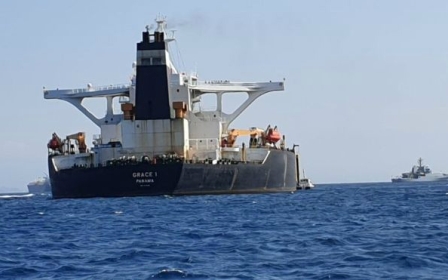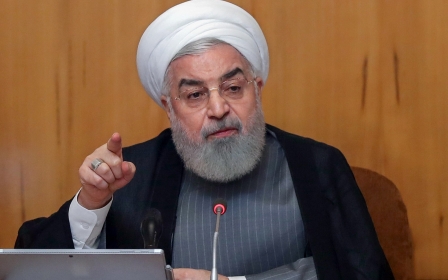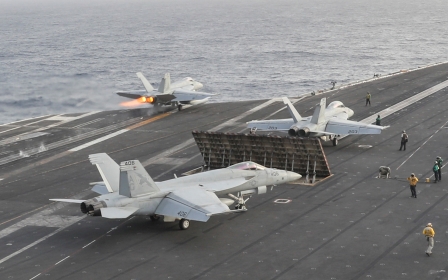UK says Iran tanker will be freed after guarantees it won't go to Syria
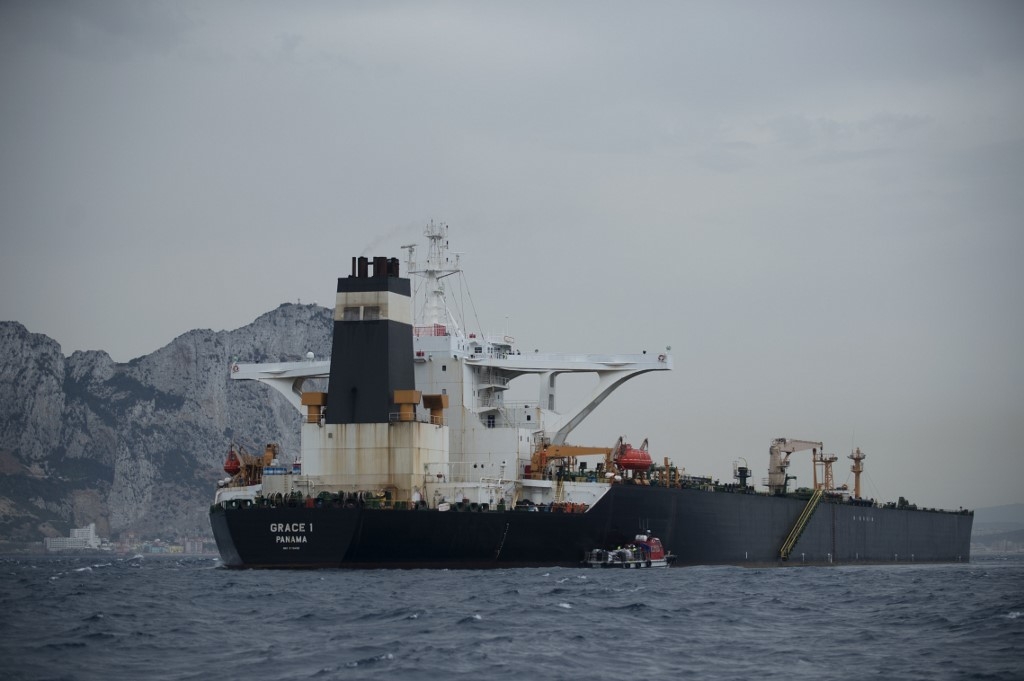
British Foreign Secretary Jeremy Hunt sought to ease tensions with Iran on Saturday, saying a tanker held by Gibraltar would be released if Tehran guaranteed it was not heading to Syria.
He said he had a "constructive call" with his Iranian counterpart Mohammad Javad Zarif, who he said assured him that Tehran "is not seeking to escalate" tensions between the countries, AFP reported.
"I reassured him our concern was destination not origin of the oil on Grace One," a tanker seized off the coast of the tiny British territory of Gibraltar on 4 July, Hunt tweeted. He said Britain "would facilitate release if we received guarantees that it would not be going to Syria, following due process in Gib (Gibraltar) courts".
US officials believed the tanker was destined for Syria to deliver oil, in violation of separate sets of EU and US sanctions.
Earlier, Gibraltar police released all four crew members of the tanker on bail without charges after they were detained last week off the coast of the British overseas territory on suspicion of breaking European sanctions by taking oil to Syria.
It comes as the United Kingdom announced it was sending a second warship to the oil-rich Persian Gulf after raising the alert level for ships travelling through Iranian waters, as tensions mount after Iranian gunboats reportedly threatened a UK supertanker.
Gibraltar police on Friday arrested the two second mates from the Grace 1 tanker, a day after the vessel’s captain and chief officer were arrested. Police said they had also obtained documents and electronic devices from the ship.
The arrested crew members were Indian.
In a statement, the police said all four crew members were granted bail with conditions. It did not elaborate but said the investigation was ongoing.
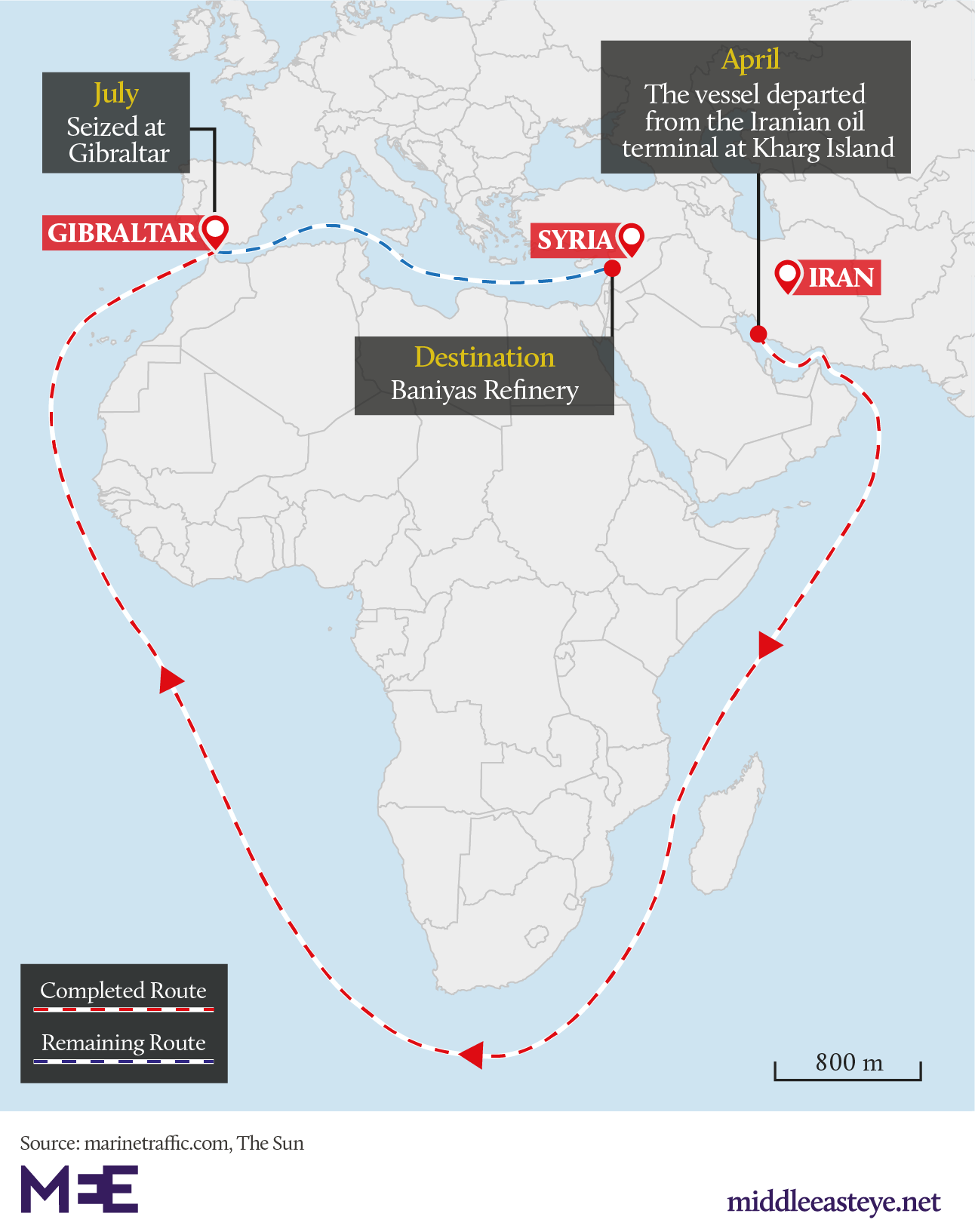
In a statement to parliament on Friday, Gibraltar Chief Minister Fabian Picardo said the Grace 1, which sailed around the southern coast of Africa after leaving Iran, was confirmed to be carrying 2.1 million barrels of light crude oil.
“We will not allow Gibraltar to be used or to be knowingly or unknowingly complicit in the breach of EU or other international sanctions or for any of the matters which our laws prohibit,” he said.
Picardo also responded to an Iranian claim that the seizure had been requested by the US, saying that the decision was "taken totally independently, based on breaches of existing law and not at all based on extraneous political considerations".
"These important decisions about breaches of our laws were not decisions taken at the political behest or instruction of any other state or third party."
Last week, Iranian President Hassan Rouhani said Britain would face "consequences" over the seizure of the Iranian tanker.
"I point out to the British that you initiated insecurity and you shall grasp the consequences of it later on," Rouhani said in comments broadcast on state TV and quoted by AFP.
'Critical' threat
British officials said on Friday that the UK was sending the HMS Duncan to the Gulf as part of a pre-planned rotation to ensure a continued British naval presence in the Strait of Hormuz, one of the most important but volatile oil shipment routes in the world.
But a source told AFP that the switchover was brought forward by several days and should see two of Britain's most advanced warships jointly navigating the waters off Iran for a period that might last a number of weeks.
The British government decided at the start of the week to raise the alert level for ships travelling through Iranian waters to three on a three-point scale, indicating a "critical" threat.
On Wednesday, HMS Montrose warned off three fast Iranian gunboats that UK officials said were trying to "impede" the progress of a British supertanker through the Strait of Hormuz in the Gulf.
Iranian officials have denied the incident ever happened.
HMS Duncan is an air defence destroyer that carries a set of heavy Harpoon anti-ship missiles and has a company and crew in excess of 280.
Middle East Eye propose une couverture et une analyse indépendantes et incomparables du Moyen-Orient, de l’Afrique du Nord et d’autres régions du monde. Pour en savoir plus sur la reprise de ce contenu et les frais qui s’appliquent, veuillez remplir ce formulaire [en anglais]. Pour en savoir plus sur MEE, cliquez ici [en anglais].


